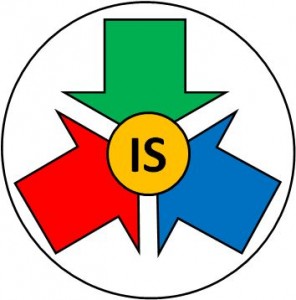 There is always more than one way to look at something and each perspective is complementary to the others.
There is always more than one way to look at something and each perspective is complementary to the others.
Improvement Science has three faces: the first is the Process Face; the second is the People face and the third is the System face – and is represented in the logo with a different colour for each face.
The process face is the easiest to start with because it is logical, objective and absolute. It describes the process; the what, where, when and how. It is the combination of the hardware and the software; the structure and the function – and it is constrained by the Laws of Physics.
The people face is emotional, subjective and relative. It describes the people and their perceptions and their purposes. Each person interacts both with the process and with each other and their individual beliefs and behaviours drive the web of relationships. This is the world of psychology and politics.
The system face is neither logical nor emotional – it has characteristics that are easy to describe but difficult to define. Characteritics such a self-organisation; emergent behaviour; and complexity. Our brains do not appear to be able to comprehend systems as easily and intuitively and we might like to believe. This is one reason why systems often feel counter-intuitive, unpredictable and mysterious. We discover that we are unable to make intuitive decisions that result in whole system improvement because our intuition tricks us.
Gaining confidence and capability in the practical application of Improvement Science requires starting from our zone of relative strength – our conscious, logical, rational, explanable, teachable, learnable, objective dependency on the physical world. From this solid foundation we can explore our zone of self-control – our internal unconscious, psychological and emotional world; and from there to our zone of relative weakness – the systemic world of multiple interdependencies that, over time, determine our individual and collective fate.
The good news is that the knowledge and skills we need to handle the rational physical process face are easy and quick to learn. It can be done with only a short period of focussed, learning-by-doing. With that foundation in place we can then explore the more difficult areas of people and systems.
